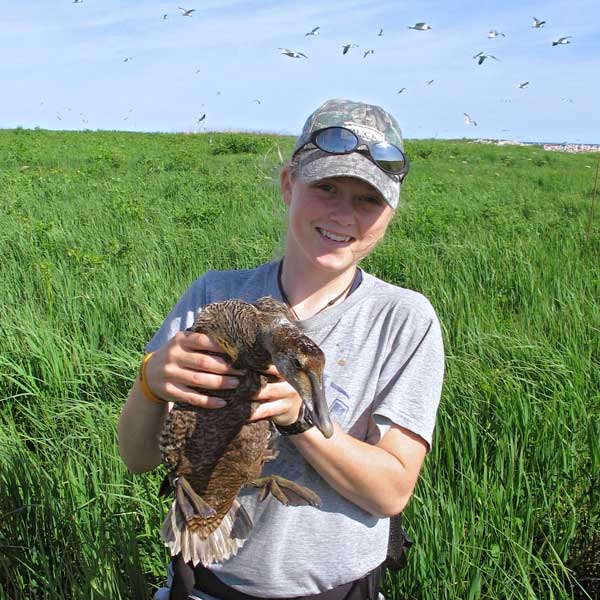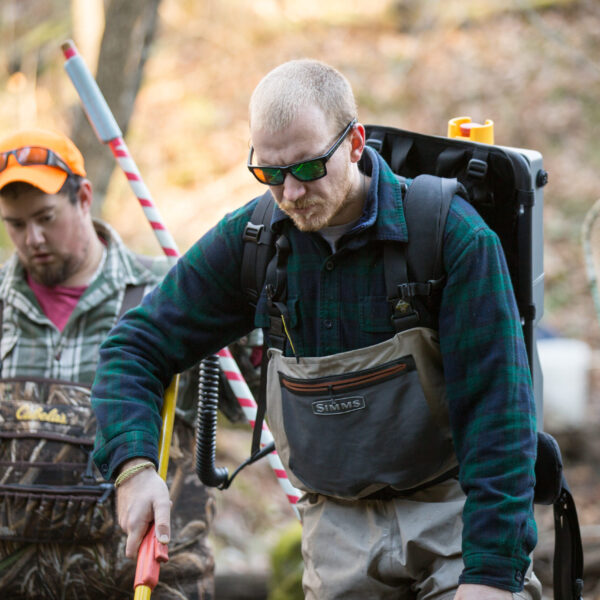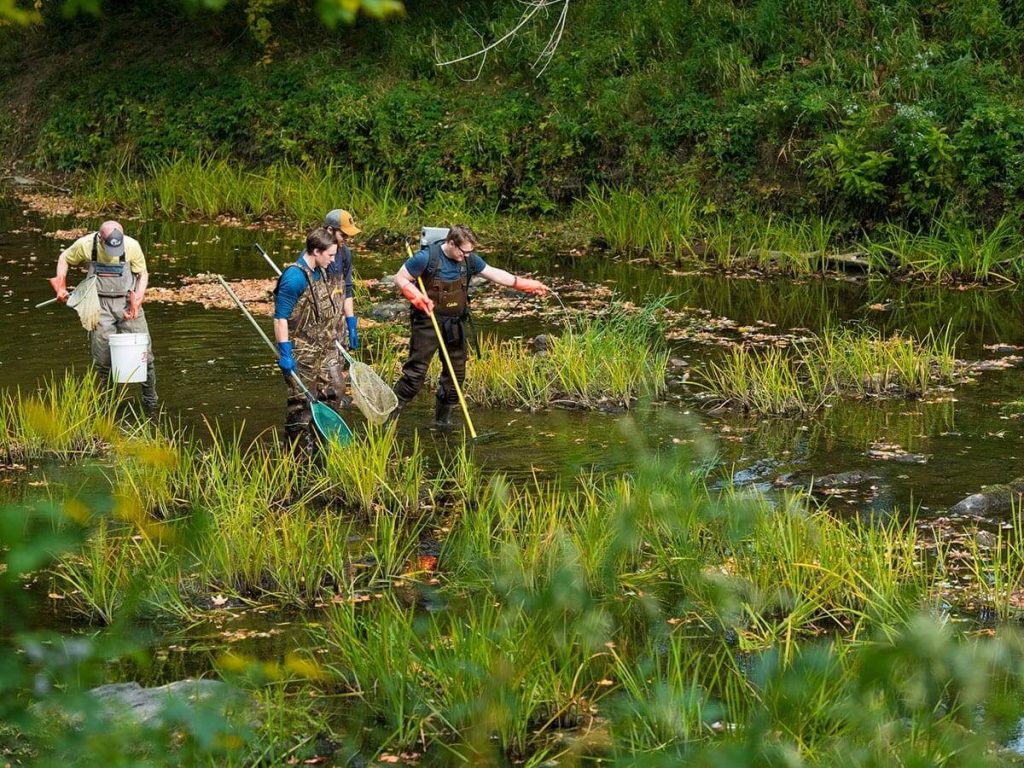
Streams to Forests: An Introduction to Wildlife and Fisheries Biology
Discover the foundational principles that govern the anatomy, physiology, and ecology of diverse species.
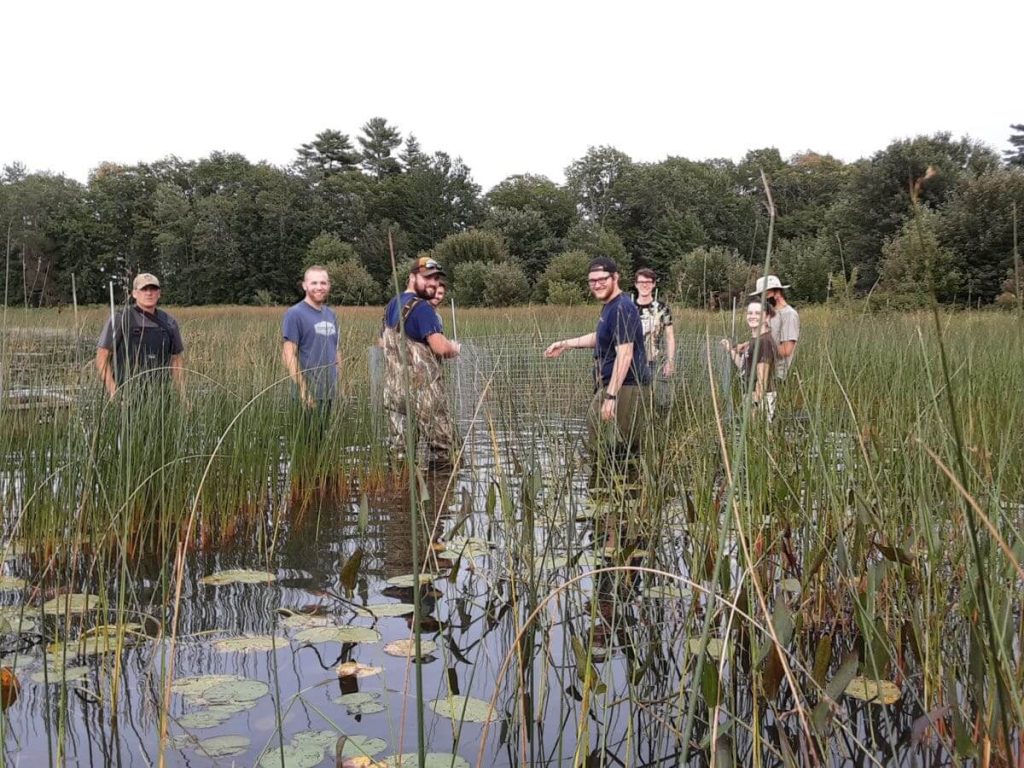

Discover the foundational principles that govern the anatomy, physiology, and ecology of diverse species.
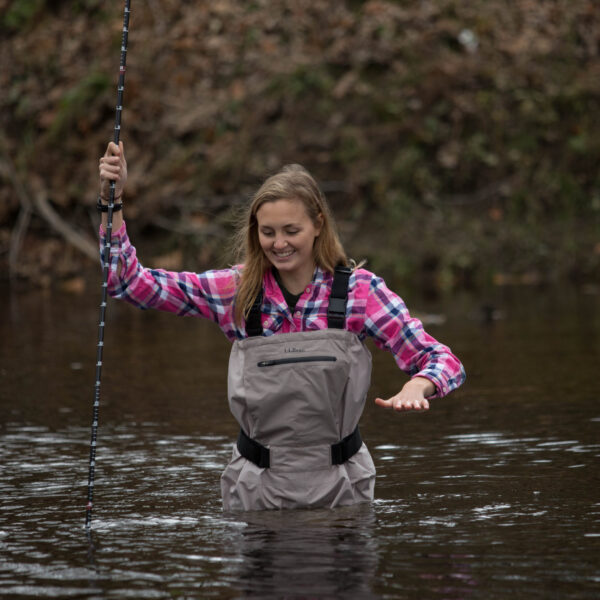
Explore the interconnected roles of biology, ecology, and genetics in preserving aquatic ecosystems.
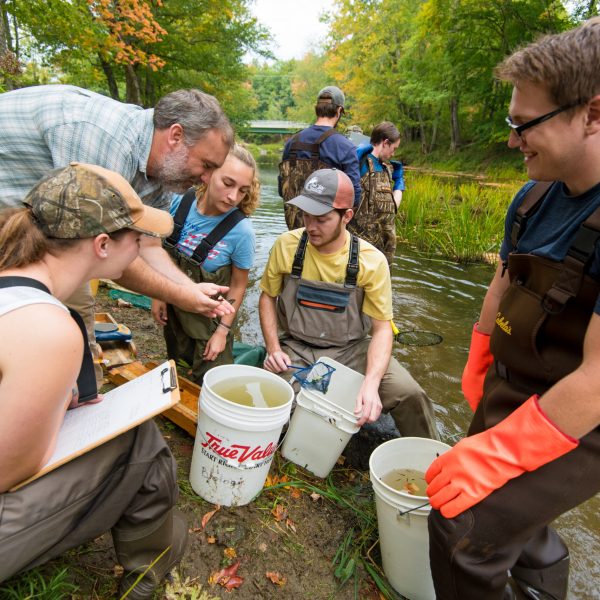
Explore the dynamic relationship between wildlife management and environmental sustainability through practical experience.
To earn a Baccalaureate degree in Wildlife and Fisheries Conservation Management, you must complete:
University Wide Requirements: A minimum of 120 earned credit hours, 30 credits at the 300 level or above, a minimum of 30 credits earned at Unity, and an overall cumulative GPA of 2.0 or above.
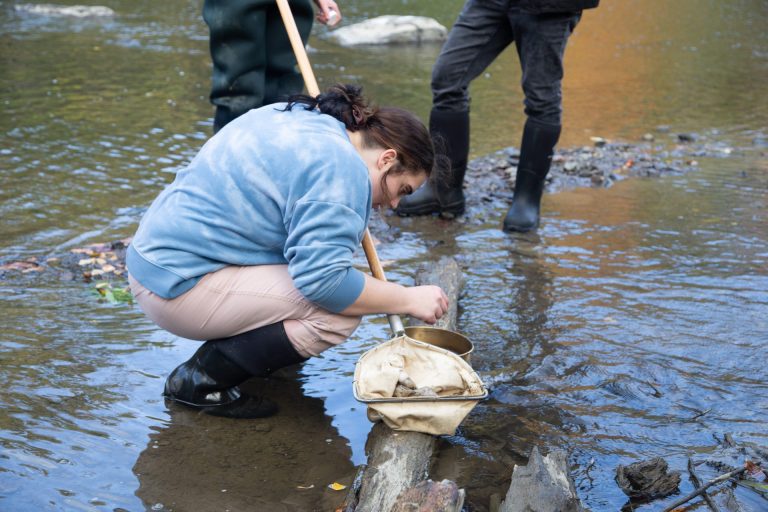
Graduates can become conservation scientists, fish and wildlife biologists, natural resource managers, or work in ecotourism.
Students engage in fieldwork, habitat assessment, population dynamics studies, GIS applications, and a required internship.
Yes, courses include natural resource law, policy, and ethics related to conservation.
